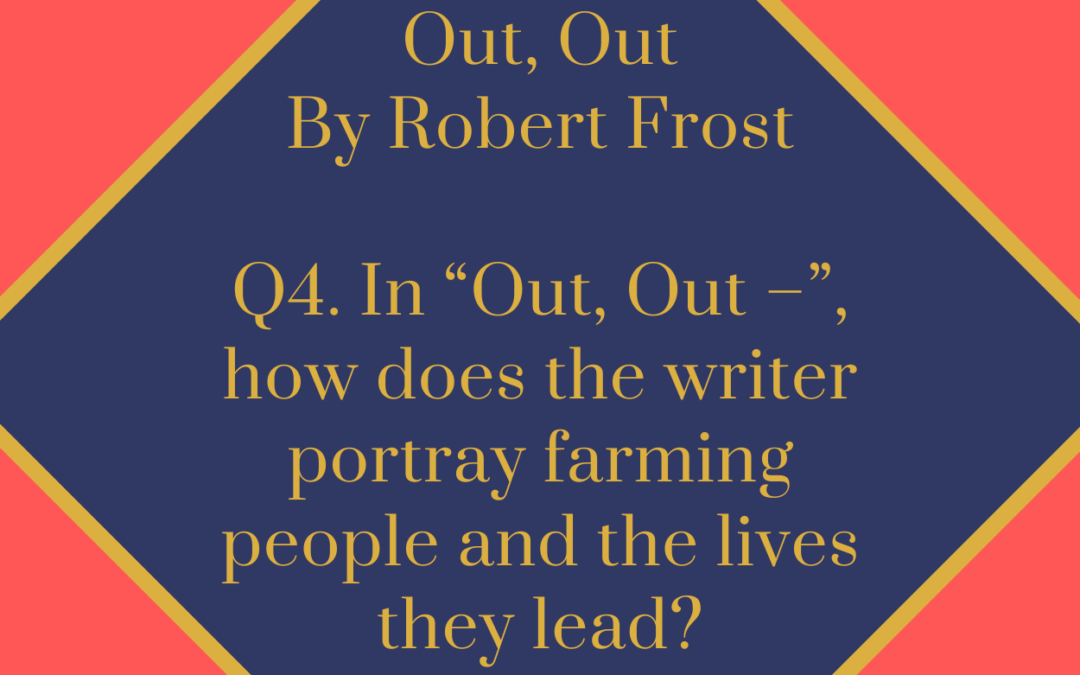Edexcel English IGCSE: Out, Out- by Robert Frost
Q4. In “Out, Out –”, how does the writer portray farming people and the lives they lead?
In your answer you should think about:
- The description of the boy;
- The fatal accident;
- The other people’s reaction to the accident;
- The use of language.
You should refer closely to the passage to support your answer. You may use brief quotations.
Edexcel English IGCSE Model Essay by an Expert
In “Out, Out –”, the writer portrays farming life as difficult and tedious, in which even children must work. The accident highlights the dangers inherent in such work. The farming people’s reactions to the boys’ death can be interpreted in various ways.
This poem shows the hardships which farming people have to endure. The violence of the saw is portrayed through personification and onomatopoeia: “snarled and rattled”. It is a symbol of the difficulty and danger of the work that farming people have to do. Even children have to do physical work: the young boy is “doing a man’s work”, and his sister is wearing an apron, implying that she has been working in the house. This work takes place in the beautiful surroundings of the American countryside, but the poet implies that they are working too hard to recognise and appreciate it: only “those that lifted eyes” would see the mountain ranges and sunset, suggesting that few of them can even take the time to remove their focus from their work.
The fatal accident shows how dangerous this physical labour can be. The boy injures his hand, and holds it up to stop “the life from spilling”. The use of the word “life” instead of “blood” alerts the reader to the potentially life-threatening nature of the injury. The boy himself also recognises the severity of the incident: “the boy saw all”. The word “boy” reminds us of the youth of the victim, and shows that in farming communities, even young children are aware of the dangers of their work. There is poignant tension between the youth and innocence of the child and the horrific situation: he is “old enough” to know that he is in danger, and yet his appeal for help is tragically childish in its repetition and fragmentation. This shows that farming children have to grow up before their time.
The observers’ reaction to the fatal accident appears callous, but also reflects the hardship of their lives. The poet adopts casual and informal language to describe the boy’s death: “that ended it” and “no more to build on there”. We sense that these are the voices of the other people, and imply that his death is not particularly significant. The poem ends with everybody returning to their work, as if the accident had not even happened. Although we can interpret this lack of emotional reaction as callous, it may also be a comment on the frequency of such incidents. Perhaps the observers do not invest emotionally in the incident, because they recognise the fragility of their attachment to life.
Farming life is portrayed in the poem as cruel and challenging, especially for vulnerable and innocent children. The violent death of the child is appalling for the reader, but for the farming people, it is perhaps less shocking and less unusual.



